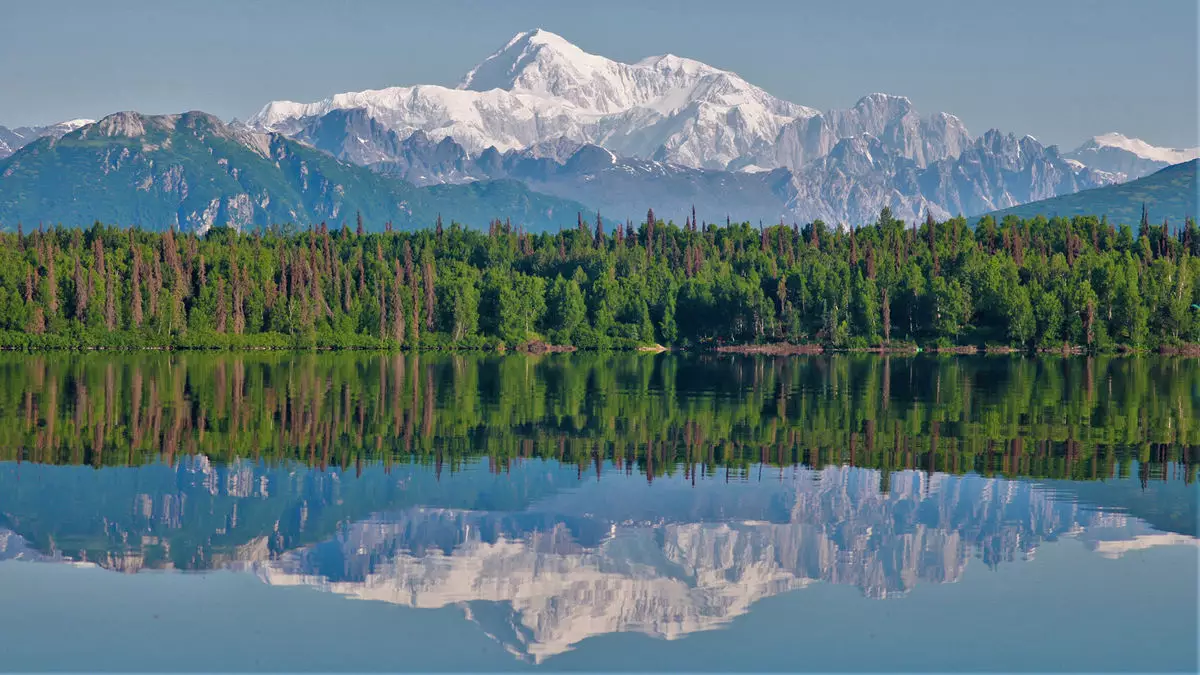The debate surrounding the name of North America’s highest peak, formerly known as Mount McKinley and currently recognized as Denali, highlights deeper issues of cultural identity and respect for Indigenous heritage. Inaugurated during President Trump’s administration, a directive to revert to the name Mount McKinley has met with significant resistance, particularly from Alaskan tourism companies and Indigenous leaders. This name change reflects a historical shift that began in 2015, when the Obama administration reinstated the mountain’s original Koyukon Athabascan name, Denali—meaning “the high one.” This change was part of a broader movement to acknowledge and honor Indigenous traditions and languages that have been marginalized for centuries.
The pushback against the potential renaming back to Mount McKinley is spearheaded by leaders like Jordan Sanford, president of Doyon Tourism, an Indigenous-owned company. Sanford emphasizes that the name Denali embodies not just linguistic significance but a profound respect and reverence that Indigenous cultures have for the land. The voice of Indigenous people in Alaska is crucial, as they are intimately connected to the land and its heritage. Their desire to retain the name Denali is intertwined with their cultural identity, and it reflects a desire to reclaim space in a narrative that has often excluded their voices.
Doyon Tourism operates excursions in Denali National Park, and their commitment to honoring the mountain’s traditional name speaks volumes about the cultural pride surrounding its Indigenous heritage. The Kantishna Roadhouse, another key player in the Alaskan tourism scene, has publicly declared its intention to maintain the name Denali in all branding and communications. These efforts are part of a larger commitment within the community to respect and honor the historical significance tied to the mountain’s original name.
The sentiment among the public appears to support the name Denali overwhelmingly, as evidenced by the massive engagement on social media where messages endorsing the name have reached tens of thousands of likes and shares. The local populace, which includes many Indigenous individuals, demonstrates a clear preference for the name Denali. The Alaska House of Representatives has even joined the fray by issuing a resolution urging the Trump administration to maintain the mountain’s Indigenous name, thus reflecting a legislative push to preserve this aspect of local identity.
This conflict over nomenclature is not merely about a name; it is a reflection of larger themes concerning ownership of history and the process of reconciliation between colonial narratives and Indigenous realities. By recognizing Denali’s name, Alaska lawmakers are taking a stand against the erasure of Indigenous history and its significance.
The Competing Narratives of Honor and History
At the heart of the name dispute resides conflicting narratives about honor and historical representation. The Trump administration’s justification for honoring President William McKinley—whose connection to the mountain is tenuous at best, given that he never set foot in Alaska—stands against the backdrop of Indigenous claims to the land. While McKinley is hailed for his political strategies, the Indigenous perspective, as articulated by Sanford, casts the renaming as a step backward in the fight for recognition and respect.
Sanford poignantly notes that Denali transcends mere geographical reference. It symbolizes an essential aspect of Indigenous culture, history, and identity. Renaming the mountain back to Mount McKinley, to some, is not merely an administrative decision; it is a denial of the progression towards embracing diversity and fostering a Malaysiaikosentiment relevant to the past.
The ongoing discourse regarding Denali versus Mount McKinley serves as a pivotal moment in re-evaluating historical narratives and the imperative for inclusivity in American culture. As various stakeholders—from local Indigenous communities to the broader Alaskan populace—advocate for the preservation of the name Denali, it becomes clear that the name holds more than geographical significance; it is a representation of resilience, cultural pride, and a step toward honoring the identities of those who have historically been overlooked.
Ultimately, listening to these diverse voices can pave the way toward a more respectful and inclusive future, where the histories of all peoples are acknowledged and celebrated instead of appropriated or erased. This ongoing debate serves as a microcosm of the broader challenges faced by Indigenous peoples across North America, as they seek recognition and a rightful place within a narrative that has long excluded them.

